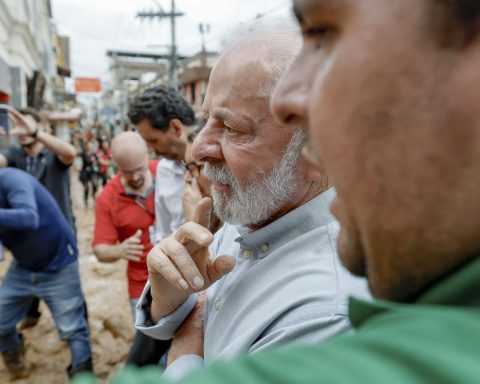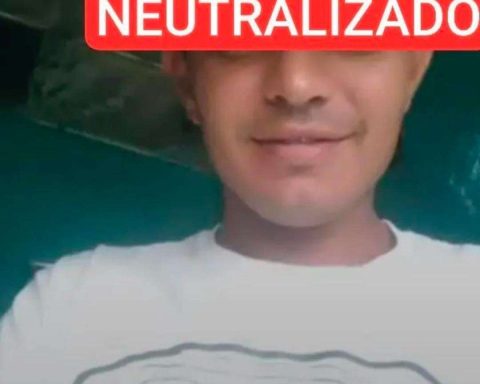August 21, 2022, 4:00 AM
August 21, 2022, 4:00 AM
Two weeks before the National Institute for Agrarian Reform (INRA) began a tour of Puerto Suárez, Carmen Rivero Tórrez, Roboré, San José de Chiquitos and San Miguel de Velasco, to assess compliance with the Economic and Social Function (ESF) of the landThe peasants, especially from the Chiquitana region, established blockade points for five days and arrived in La Paz on the march with various demands.
Four were the main orders. The modification of Supreme Decree 29215, which regulates Law No. 1715 of the National Agrarian Reform Service; planning a new land law; the ‘analysis’ ofas fiscal lands not available; and the annulment of forest concessions.
Additionally, they also demanded “legal security and titling”, and the dismissal of the Minister of Rural Development and Lands, Remy Gonzales, and the national director of INRA, Eulogio Núñez.
Currently, an INRA commission is carrying out the tour in Chiquitania, to evaluate compliance with the FES; in parallel, and according to what was agreed in a meeting in the former Conaltid, on August 12, between national authorities and those mobilized, since August 16 the work tables should have been installed to meet the demands of the Single Trade Union Federation of Peasant Workers of Santa Cruz (FSUTC-SC) Apiguaiki Tupa.
According to the minutes of that meeting, although signed only by the FSUTC-SC, it finally accepts the participation of representatives of the Eastern Bloc, made up of other organizations, such as Bartolina Sisa, Landless Movement, Intercultural Federation, one of the Cidob, etc., at the work tables.
The national director of INRA, Eulogio Núñez, recognized the need to enter to carry out the inspections and evaluations of the FES, to immediately go to the endowment and qualification. “And suspiciously, when we have the plan to enter, with them even, with social control, suddenly they asked for the title and direct endowment,” he acknowledged.
Núñez also admitted that one of the farmers’ arguments is that in 12 years there are communities that have not been able to process legal status, which is like their identity card, which gives them rights and obligations. “They ask that this be avoided, since some communities do not have legal status because the Government did not give them, and that cannot be done either because then we would be going to legalize ghost communities that they themselves have denounced,” he asserted.
break
Before the negotiations, while the pressure measures were active, such as the march to La Paz and the blockades, the peasants of the FSUTC-SC isolated themselves from the other organizations, to the point of not attending meetings called by the Departmental INRA, after the events of Pailitas, for the Las Londras case, and to present their demands alone before the national INRA.
At this point, the Eastern Bloc, through a statement, made it clear that the demands must be raised in that instance, and also in the Land and Territory Commission of the Plurinational Legislative Assembly, “for the benefit of all, and not just one person.” sector”. They also called on the peasants to “lay down anti-revolutionary attitudes”and to hold a summit on land and territory, to “replace the Inra Law and the Forestry Law.”
Likewise, the Eastern Bloc demanded the immediate reversion of the large estates and idle lands that do not comply with the FES. In addition, it demanded the distribution of fiscal lands identified and “to be identified” to those who have “insufficient” land,
The Land and Territory Commission and INRA guarantee the solution of agrarian conflicts, we demand their immediate and true institutionalization, through an independent instance of the Executive Power”, the statement concludes.
The national head of INRA acknowledged that in Santa Cruz the FSUT was divided, and that the Single Trade Union Confederation of Peasant Workers of Bolivia (Csutcb) had to intervene, and that this faction from the department of Santa Cruz, especially from Chiquitania, and also from Guarayos, are the ones who asked for annulment of the forestry concessionsrevision of the unavailable fiscal lands, “which are the (national) parks, the protected areas, the water spots, and they are considering planning a law, partially modifying the agrarian decree, which cost so much to agree on in 2007.”
Summit
Regarding the feasibility or not of the demands, Núñez said that as a Government the openness to a broad and plural analysis among all the actors was made clear, but he assured that INRA needs to enter to evaluate the FES in the Chiquitano region, where 820 communities are registered. with settlement resolution, from 2010 to 2019, which benefited from 1.3 million hectares.
The national head of INRA said that if something is wrong with the regulations, it can always be improved. “Why not raise a broad debate among all sectors, which will be a longer process.” However, he took it for granted that the Departmental Agrarian Commission (CAD) was rendered inapplicable with the approval of the new CPE. “The jurisdiction of titling, regularization and distribution of land is exclusive to the central level”, he claimed.
Núñez assured that they are meeting with “all sectors”, such as the Eastern Bloc, the Unity Pact, in Beni the same as the coordinator of institutions, but we are also with sectors such as the Eastern Agricultural Chamber (CAO), Fegasacruz, and the Bolivian Forestry Chamber (CFB), “That they were part of the CAD. We are an open INRA because we need to finish the sanitation that has not been completed in 25 years,” he said.
The reactions
Researcher Gonzalo Colque considers that these disagreements are fights for access to state land, and that the responsibility lies with INRA, which has basically created an intermediate figure between staffing and titling of fiscal lands, which are settlement resolutions.
“This figure did not exist in the INRA Law, it is not in the Community Reconduction Law or in the regulations, but INRA has created it in an effort to hand over land without handing it over completely, as a provisional authorization because INRA already I knew that those public lands were not available, or had forest concessions. Knowing that, have authorized and now people ask for definitive ownership. This is where INRA It no longer has the capacity to respond because that implies modifying the law, as is being requested now,” he explained.
According to Colque, the fact that the government had signed an agreement to lift the pressure, without openly saying under what conditions, suggests that it is, through the working groups with the organizations, opening the possibility of meeting their demands“which are unacceptable in the terms in which they are, since they mean changing the law, and in some cases contravening the CPE.”
Alcides Vadillo, director of Fundación Tierra’s Eastern Region, assured that there are economic interests, and that this is the first element, since many of those who received a settlement resolution have transferred that right of possession. “A whole black market for land has been generated. If a folder is reviewed, that no one knows about them, which is a total lack of transparency at INRAwe will be able to see how the names of the beneficiaries have been changing”, he argued.
He clung to the fact that the INRA Law establishes that the distribution of public land must go through the CAD, which was not done. He also said that the INRA Law establishes that any settlement is illegal if it has been made after 1996, and that there are hundreds, thousands of settlements that even were promoted after 2010, “and that they are at a level of illegality, and that the logic is to change the law” to fix that.
He gave Guarayos as an example, with authorizations on lands that are forestry concessions, within the reserve, and many are from Cuatro Cañadas and San Julián. “They are the strong ones there, the ones who are moving everything to change the law of the forest reserve, or change the INRA Law itself, to acquire legality,” he said, and warned that the goal is to reduce the reserve of more than one million from ha to 200 thousand. Franklin Vargas García, executive secretary of the FSTC-SC said that they have four petitions that have to be reviewed together. He indicated that they have communities within public lands, “perhaps not available”, and that an alternative solution must be seen because they have been settled for more than 10 and 15 years, and without legal certainty. As for the forest concessions, “some would be on our available public lands,” he said. Vargas also said that some decrees must be reviewed, “which would not be updated to the new CPE”, and that this review will be done with all the competent organizations.


















